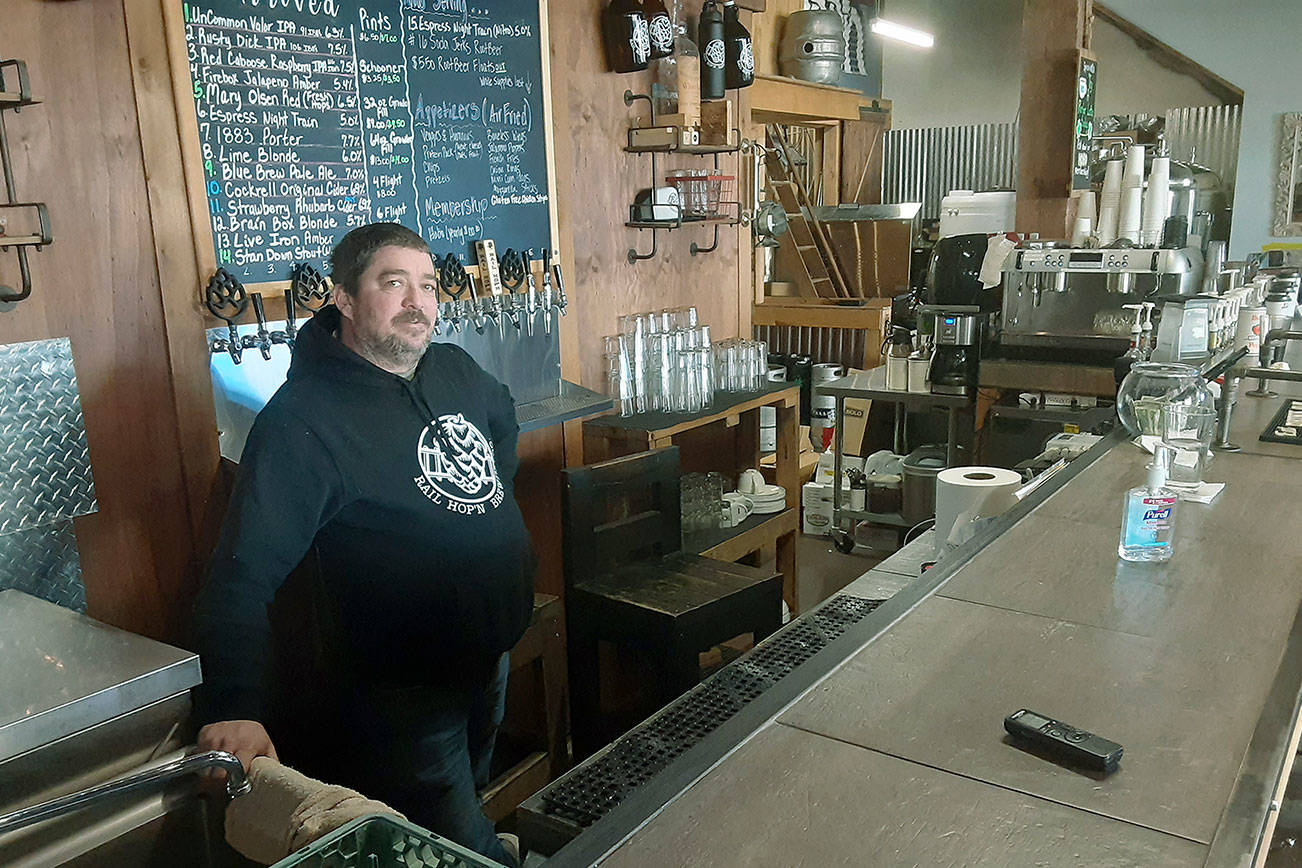Gov. Jay Inslee announced Monday an emergency proclamation that mandates the immediate two-week closure of all restaurants, bars, and entertainment and recreational facilities throughout the state, as well as additional limits on large gatherings.
The new orders go into effect at midnight Monday and will be in place through March 31.
The announcement comes after the recent spike in numbers of COVID-19 cases in the state and throughout the country.
“If we are living a normal life, we are not doing our jobs as Washingtonians,” Inslee said. “We cannot do that anymore. We need to make changes, regardless of size. All of us need to do more. We must limit the number of people we come in contact with. This is the new normal.”
Inslee made the announcement in Seattle with King County Executive Dow Constantine and other local and health leaders via streaming and telephone to practice social distancing measures.
Statewide closure of all on-site food or beverage services
Inslee announced the two-week ban on any food or beverage service, regardless of location, that provides or allows on-site consumption.
The ban will not apply to grocery stores and pharmacies.
The ban includes, but is not limited to,
• Restaurants,
• Food courts,
• Bars and taverns,
• Wine, beer and spirits tasting venues,
• Doughnut shops and ice cream parlors,
• Coffee shops and
• Sit-down airport restaurants and bars.
• Take-out, delivery and drive-thru food and beverage services are not banned under the proclamation.
College and higher education campus dining halls are banned from providing on-site dining, but may provide take-out and delivery options. On-site food service and other related activities are permitted for childcare services and school-based food programs for K-12 schools.
Statewide guidance for social distancing in retail stores
Businesses are expected to ensure adequate environmental cleaning of stores and must designate an employee or officer to implement a social distancing plan for their business.
Once again, grocery stores and pharmacies will remain open under the emergency proclamation.
“The supply chain is strong,” Inslee said. “Grocery stores will continue operating and providing services to Washingtonians. There is no need to hoard food or supplies. Everyone needs to only buy what they need, and they need to remember when they overbuy, those things are taken away from their neighbors and others who need them now.”
Statewide closure of entertainment, leisure and non-essential services
Inslee also included entertainment, leisure and non-essential services in today’s emergency proclamation.
The ban includes, but is not limited to,
• Theaters,
• Bowling alleys,
• Gyms and fitness centers,
• Non-tribal card rooms,
• Museums,
• Art galleries,
• Tattoo parlors,
• Barbers, hair salons and nail salons.
Statewide ban on gatherings of 50 or larger
Inslee also announced a further executive order expanding on orders from last week. Last Friday, Inslee expanded the ban on events larger than 250 beyond the Puget Sound region to the entire state. Today, he announced the ban will decrease in size to prohibit all events of 50 or larger statewide.
Additionally, all gatherings with under 50 participants are prohibited unless criteria from the CDC for public health and social distancing are met.
“I am proud of how Washingtonians have stepped up and worked together,” Inslee said. “I know we still have long days ahead, but I know that together we will prevail and be a stronger state as a result. We will get through this together and life will return to normal, but the steps we are taking now will help us get back to normal sooner.
”I ask everyone to take these steps to protect themselves, their families and their communities. Everyone needs to play their part. “
Request to federal government on personal protective equipment
Earlier today, Inslee joined fellow governors on a call with President Trump and Vice President Pence. Inslee asked the administration to change how personal protective equipment (PPE) is allocated. Currently, PPE is allocated to each state equally, but Inslee made the case that allocations should be distributed according to need, in states like Washington, with high cases numbers and fatalities.


